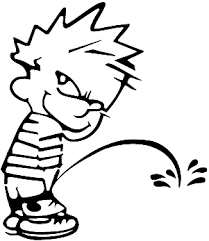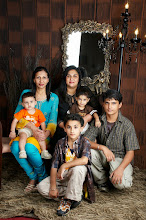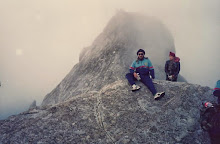HISTORY and past glory will be thrown out of the window as the Malaysia Hockey League (MHL) gets underway to day.
This is because newly appointed national chief coach Paul Revington and his assistant Arul Selvaraj would be on the lookout for new blood to play for the country in the Champions Challenge I and Asian Champions Trophy in November and December respectively.
There are some experienced hands in the national team that need to be replaced fast, as they have shown little motivation or promise in the Dublin Olympic Qualifiers.
And with plenty of young legs, especially players from the Project 2013, who have shown more desire and promise, there could be some surprises in the selection when the MHL ends on Oct 10.
In the Premier Division, which will see six quality sides instead of the nine diluted teams last season, double cham pions KL Hockey Club and Tenaga Nasional start as favourites while Sapura, Maybank, UniKL and Nur Insafi- MBI have openly declared that their focus is making the semi- finals.
And there would be seven teams in Division One fighting it out for their own league and overall titles, as there is no quarter-finals in the TNB Cup this season.
Today, fans are in for quality time as defending champions KL Hockey Club play league runners-up Sapura in the Charity Shield.
Sapura have promising youngsters and steady old hands while KLHC’s line-up comprises the who’s who of Malaysian hockey.
Former national coach Stephen van Huizen, who now is a coaching consultant for Sapura conceded that KLHC will be the team to beat: “KLHC are the favourites as they are not only the defending double champions but have the services of all the key national players as well as ex national players who have played together for a few years.
“They have built a good understanding over the years, and are armed with deadly penalty corner set pieces. Its an opening match that will severely test my side.”
KLHC have a sound penalty corner battery in Razie Rahim, Ahmad Kazairul and Baljit Singh.
“Besides having good set pieces, in Tengku Ahmad Tajud din, Chua Boon Huat, Azlan Misron and Kelvinder Singh, KLHC also has strength on the bench,” said Stephen.
Sapura have former skipper S. Kuhan, the Mohan brothers Jiwa and Jivan and Megat Azrafiq for experience.
They also have Korea’s Jason Lee Mung Seon and Pak istan’s Muhammad Imran to boost their challenge.
KLHC coach K. Dharmaraj said their mission is to win every match as there are only five opponents.
“We always play to win, and with home-and-away, we can’t let the other team grow in confidence by losing points, As this would make the return leg much more difficult,” said Dharmaraj.
TODAY: Premier Division -- Tenaga v Maybank (National Stadium II, 4pm), UniKL v MBI-Nur Insafi (National Stadium II, 6pm), KLHC v Sapura (National Stadium II, 8pm).
Division One: Armed Forces v UniTen (National Stadium I, 5pm), Bukit Jalil Sports School v Thunderbolts (Ministry of Education, 5pm), Politeknik-KPT v Johor HA (Taman Daya, 5pm).
Tomorrow: Premier Division -- Tenaga v MBI-Nur Insafi (National Stadium II, 4pm), Maybank v KLHC (National Stadium II, 6pm), Sapura v UniKL (National Stadium II, 8pm).
Division One: UiTM v Armed Forces (Ministry of Education, 5pm), Thunderbolts v UniTen (National Stadium I, 5pm).
By Siddharth Saxena & Ritu Sejwal
BLOG EDITOR’S NOTE: Nobody, not even the Indians, understand themselves. That is why it is such an interesting country...
NEW DELHI: A terribly jet-lagged Michael Nobbs agreed to take time out and speak to TOI on India's hockey debacle at the London Olympics. The Indian coach spoke on India's 12th-place finish and more. Excerpts from an exclusive interview:
This is India's worst-ever show at the Olympics...
Really? I think not being at the Olympics at all was worse.
Realistically, where did you think you would have finished?
I hoped we could have liked us to win at least a couple of games. We had the pool of death. It was the pool of death by a mile. Every team in pool was above India in the rankings. We were only better than Belgium who is fast improving in the last six years. And, Holland walloped Britain 9-2.
But that again is no excuse for the showing...
No, it's no excuse. That's the reason. We've only had our team together for 12 months now. It was unrealistic to think that India would finish in the middle of the pack. We had the youngest and most inexperienced team at the Olympics.
So, how would you define India's failure in London?
It was extremely disappointing, it's embarrassing. After we had made some really good strides in the past year, we had had some really good results and to finish like that is really disappointing.
As an Australian who once said that he was more Indian than most Indians, can you comprehend such a debacle?
People's expectations of hockey are way beyond the actual picture. The programme in place in countries like Germany, Holland, Belgium, Australia, New Zealand and Korea have been in place for many, many years and very well-structured and the results are as they are showing.
Germany, Holland and Australia haven't gone off the top four for 30 years now. So their programme and structures work. If you don't have those programmes and processes in place, you'll never get there. These are the things required in Indian hockey, which haven't been there. If they had, we'd be up there. You can't take a Band Aid approach. That's why it's important to have a five-yearly programme. And I had said to everybody, 'Be prepared for some pain'. You can keep applying Band Aid, but when the person's hemorrhaging, it doesn't work.
In London, you clearly began cutting a lonely figure as things worsened...
Yes, my toe still hurts badly (laughs). But, I owe a debt to India. I realised it's a ridiculously difficult job, much more than I imagined when I first arrived here. Yes, you could say I was naive in understanding I had all areas covered. Obviously, there is an Indian way of working and I need to get around that and different areas of the hockey system.
There's this perception that had the WSH gotten off, the players would be more involved because there would be more money coming in and players would have been more willing to perform?
I don't know. Hockey India's own league is coming up. There's going to be some top European players coming here and that's going to be really beneficial because you're also going to get top European coaches. We have to play our Indian players with the European players and I think that should help greatly.
Getting to the Olympics after eight years, do you think that the Indian mentality is that one is satisfied with just competing in the Olympics?
If you see Australia, they've competed in 30 Olympics, attained 360 medals with a population of 26 million, while India's competed in 22 Olympics, attained 24 medals. China achieved over 500 medals since 1992, so the disparity between the expectations of the public and the reality is great.
Do you think that when we beat France in Delhi last year there was an overriding sense of relief which overshadowed the pragmatism that should have been in place?
As I said earlier, we would qualify, and if we got anywhere at the Olympics, that would be a bonus. We were good enough to beat teams in qualifiers, the fitness was good enough and we deserved to be at Olympics competing against very experienced and talented teams. It was a tough challenge.
What level of pride did you notice with the Indian team?
Sardar wants to play hockey and be the best that he can be. When he loses a match, he cries, he actually cries. That is the embodiment of an Olympian. It hurts me unbelievably because it hurts the Indian public. I tell you, I shed a tear, because it's not acceptable. Once we analyse we can discover the causes and make sure it doesn't happen again. We shouldn't make mistakes a second time.
You claimed that the team's performance had been improving steadily, and then it dipped alarmingly in London. What went wrong?
It intrigues me. Maybe it was the pressure of playing in the Olympics? That's something that needs to be analyzed. I'm meeting with sports psychologists to discuss that, but walking out on an Olympic field can be a daunting prospect with all the global viewing and intimidating environment. It's different from an ordinary international match.
Personally, what did you learn from this experience?
When you're the coach, the buck stops with you.
Nobbs' Revival Recipe:
FIH coaching programme
Needs to be implemented to provide good footing for Indian coaches.
Education for youngsters
Health and safety, psychology, fitness among others.
Protect Experience.
And encourage contribution from former players.
Teamwise
Trapping needs immediate attention ability to convert penalty corners need for aggression/ physicality like big hockey nations.
The Times of India
BLOG EDITOR’S NOTE: Nobody, not even the Indians, understand themselves. That is why it is such an interesting country...
NEW DELHI: A terribly jet-lagged Michael Nobbs agreed to take time out and speak to TOI on India's hockey debacle at the London Olympics. The Indian coach spoke on India's 12th-place finish and more. Excerpts from an exclusive interview:
This is India's worst-ever show at the Olympics...
Really? I think not being at the Olympics at all was worse.
Realistically, where did you think you would have finished?
I hoped we could have liked us to win at least a couple of games. We had the pool of death. It was the pool of death by a mile. Every team in pool was above India in the rankings. We were only better than Belgium who is fast improving in the last six years. And, Holland walloped Britain 9-2.
But that again is no excuse for the showing...
No, it's no excuse. That's the reason. We've only had our team together for 12 months now. It was unrealistic to think that India would finish in the middle of the pack. We had the youngest and most inexperienced team at the Olympics.
So, how would you define India's failure in London?
It was extremely disappointing, it's embarrassing. After we had made some really good strides in the past year, we had had some really good results and to finish like that is really disappointing.
As an Australian who once said that he was more Indian than most Indians, can you comprehend such a debacle?
People's expectations of hockey are way beyond the actual picture. The programme in place in countries like Germany, Holland, Belgium, Australia, New Zealand and Korea have been in place for many, many years and very well-structured and the results are as they are showing.
Germany, Holland and Australia haven't gone off the top four for 30 years now. So their programme and structures work. If you don't have those programmes and processes in place, you'll never get there. These are the things required in Indian hockey, which haven't been there. If they had, we'd be up there. You can't take a Band Aid approach. That's why it's important to have a five-yearly programme. And I had said to everybody, 'Be prepared for some pain'. You can keep applying Band Aid, but when the person's hemorrhaging, it doesn't work.
In London, you clearly began cutting a lonely figure as things worsened...
Yes, my toe still hurts badly (laughs). But, I owe a debt to India. I realised it's a ridiculously difficult job, much more than I imagined when I first arrived here. Yes, you could say I was naive in understanding I had all areas covered. Obviously, there is an Indian way of working and I need to get around that and different areas of the hockey system.
There's this perception that had the WSH gotten off, the players would be more involved because there would be more money coming in and players would have been more willing to perform?
I don't know. Hockey India's own league is coming up. There's going to be some top European players coming here and that's going to be really beneficial because you're also going to get top European coaches. We have to play our Indian players with the European players and I think that should help greatly.
Getting to the Olympics after eight years, do you think that the Indian mentality is that one is satisfied with just competing in the Olympics?
If you see Australia, they've competed in 30 Olympics, attained 360 medals with a population of 26 million, while India's competed in 22 Olympics, attained 24 medals. China achieved over 500 medals since 1992, so the disparity between the expectations of the public and the reality is great.
Do you think that when we beat France in Delhi last year there was an overriding sense of relief which overshadowed the pragmatism that should have been in place?
As I said earlier, we would qualify, and if we got anywhere at the Olympics, that would be a bonus. We were good enough to beat teams in qualifiers, the fitness was good enough and we deserved to be at Olympics competing against very experienced and talented teams. It was a tough challenge.
What level of pride did you notice with the Indian team?
Sardar wants to play hockey and be the best that he can be. When he loses a match, he cries, he actually cries. That is the embodiment of an Olympian. It hurts me unbelievably because it hurts the Indian public. I tell you, I shed a tear, because it's not acceptable. Once we analyse we can discover the causes and make sure it doesn't happen again. We shouldn't make mistakes a second time.
You claimed that the team's performance had been improving steadily, and then it dipped alarmingly in London. What went wrong?
It intrigues me. Maybe it was the pressure of playing in the Olympics? That's something that needs to be analyzed. I'm meeting with sports psychologists to discuss that, but walking out on an Olympic field can be a daunting prospect with all the global viewing and intimidating environment. It's different from an ordinary international match.
Personally, what did you learn from this experience?
When you're the coach, the buck stops with you.
Nobbs' Revival Recipe:
FIH coaching programme
Needs to be implemented to provide good footing for Indian coaches.
Education for youngsters
Health and safety, psychology, fitness among others.
Protect Experience.
And encourage contribution from former players.
Teamwise
Trapping needs immediate attention ability to convert penalty corners need for aggression/ physicality like big hockey nations.
The Times of India



























































